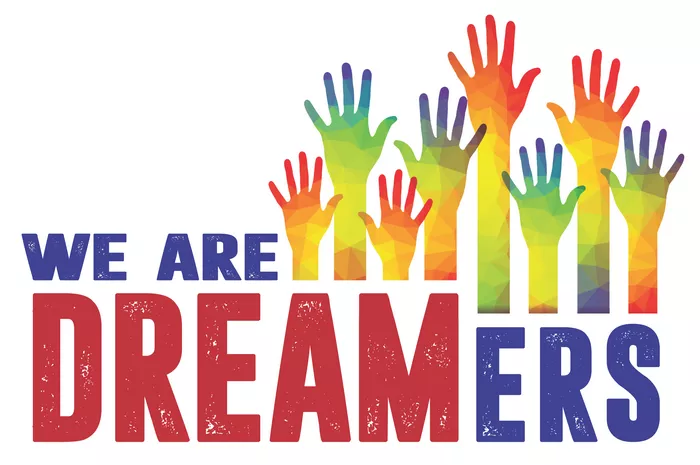The term “Dreamer immigrant” has become a prominent fixture in discussions surrounding immigration policy, particularly in the United States. But who exactly are the Dreamers, and what sets them apart? In this article, we delve into the concept of Dreamer immigrants, exploring their backgrounds, struggles, and the impact they have on society.
Defining Dreamer Immigrants
The term “Dreamer” refers to individuals who are recipients of the Deferred Action for Childhood Arrivals (DACA) program in the United States. Established in 2012 under the Obama administration, DACA provides temporary protection from deportation and work authorization to eligible undocumented immigrants who were brought to the country as children. These individuals are often referred to as Dreamers because they share the common aspiration of pursuing education, career opportunities, and a better life in the only country they have known as home.
Who Are the Dreamers?
Dreamers come from diverse backgrounds, but they share a common thread: they were brought to the United States at a young age by their parents or guardians. Many Dreamers have spent the majority of their lives in the U.S., attending school, participating in their communities, and contributing to society in various ways. They often speak English fluently and identify strongly with American culture, despite lacking legal immigration status.
It’s important to recognize that Dreamers are not a homogenous group. They come from a wide range of ethnic, cultural, and socioeconomic backgrounds. Some Dreamers may have arrived in the U.S. as infants, while others were older children when they crossed the border. Despite these differences, they all face similar challenges due to their undocumented status.
Challenges Faced by Dreamers
One of the primary challenges faced by Dreamers is the uncertainty surrounding their legal status. While DACA provides temporary relief from deportation and allows Dreamers to obtain work permits, it does not offer a pathway to citizenship or permanent residency. As a result, Dreamers live with the constant fear of deportation and separation from their families, despite having spent the majority of their lives in the United States.
Access to higher education is another significant challenge for many Dreamers. While DACA allows them to attend college and work legally, they are often ineligible for federal financial aid and may face higher tuition rates as out-of-state or international students. Additionally, some states have enacted laws that prohibit undocumented students from qualifying for in-state tuition rates or scholarships, further limiting their access to higher education.
Employment opportunities can also be limited for Dreamers, as many employers require proof of legal status before hiring. This can make it difficult for Dreamers to secure stable employment and pursue their career goals. Despite these challenges, many Dreamers demonstrate resilience and determination in pursuing their dreams and contributing to their communities.
Contributions of Dreamers
Despite the obstacles they face, Dreamers make significant contributions to American society in various fields. Many Dreamers excel academically and go on to pursue careers in fields such as healthcare, education, technology, and the arts. They serve as role models and leaders in their communities, advocating for immigrant rights and social justice.
Dreamers also contribute to the economy through their work and consumer spending. According to a study by the Center for American Progress, ending DACA and deporting Dreamers would result in a significant loss of economic output, costing the U.S. economy billions of dollars over the next decade. By allowing Dreamers to work legally and contribute to the economy, DACA benefits not only the individuals themselves but also the broader community.
Furthermore, Dreamers enrich American culture with their diverse perspectives and experiences. They bring new ideas, innovations, and talents to the table, helping to drive progress and innovation in various industries. As integral members of society, Dreamers play a vital role in shaping the future of the United States.
The Fight for DACA and Immigration Reform
Despite the positive impact they have on society, Dreamers continue to face uncertainty and insecurity due to the lack of permanent legal status. The DACA program has faced numerous legal challenges since its inception, with the Trump administration attempting to end the program in 2017. While the Supreme Court ultimately blocked the administration’s efforts to terminate DACA in 2020, the program remains at risk as legal battles continue.
The ongoing uncertainty surrounding DACA highlights the need for comprehensive immigration reform in the United States. Dreamers, along with millions of other undocumented immigrants, deserve a pathway to citizenship that recognizes their contributions and provides them with the security and stability they need to thrive. Efforts to pass legislation such as the Dream Act, which would provide a pathway to citizenship for Dreamers, have stalled in Congress for years due to political gridlock and partisan divisions.
However, there is growing bipartisan support for protecting Dreamers and finding a permanent solution for undocumented immigrants who were brought to the country as children. Polls consistently show that a majority of Americans support granting legal status to Dreamers, regardless of their political affiliation. As such, there is hope that Congress will eventually come together to pass meaningful immigration reform that provides relief for Dreamers and addresses the broader issues within the immigration system.
Conclusion
Dreamer immigrants represent the resilience, determination, and hope of millions of undocumented immigrants who call the United States home. Despite facing numerous challenges, Dreamers continue to pursue their dreams, contribute to their communities, and enrich American society with their talents and experiences. As the debate over immigration reform continues, it is essential to recognize the humanity and dignity of Dreamers and work towards a solution that upholds their rights and provides them with the opportunity to fully participate in the country they love and call home.


